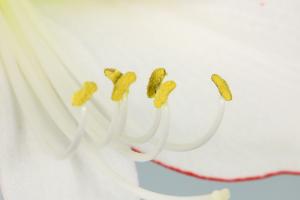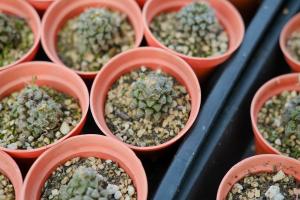What Organelle Stores Water in a Plant Cell
Plants are known to possess specialized structures that enable them to convert light energy into chemical energy. These structures are referred to as organelles, which are specialized cell components with specific functions. One such organelle that is responsible for storing water in a plant cell is the vacuole. The vacuole is a fluid-filled sac that stores water, nutrients, pigments, and waste products. In this article, we will discuss the structure and function of the vacuole and the critical role it plays in plant life.
The Structure of the Vacuole in a Plant Cell
The vacuole is one of the largest organelles in a plant cell and is found in the cytoplasm. It is a membrane-bound organelle with a single membrane known as the tonoplast. The tonoplast separates the contents of the vacuole from the cytoplasm and the rest of the cell. The vacuole contains a fluid known as the cell sap, which is made up of water and dissolved substances such as salts, sugars, and organic acids. The pH of the sap is usually acidic, ranging from 4 to 5.
The Function of the Vacuole in Plant Cells
The vacuole performs several critical functions in the plant cell, with the most important being the storage of water. The large size of the vacuole allows it to hold a large volume of water, making it an essential reservoir that helps the plant to maintain its turgor pressure. Turgor pressure is the force that pushes the plasma membrane against the cell wall, thereby maintaining the shape and rigidity of the cell. Without the vacuole, the cell wall would collapse, leading to wilting and death of the plant.
The vacuole also plays a crucial role in maintaining the pH balance of the cytoplasm. The acidic nature of the vacuolar sap helps to maintain the optimal pH of the cytoplasm by absorbing and accumulating excess ions. This is important because the cytoplasm is sensitive to changes in pH, which can negatively impact the metabolic processes of the cell.
Additionally, the vacuole is responsible for the storage and sequestration of toxins and waste products in the plant cell. The sequestration of these substances prevents them from interfering with the normal functioning of the cell and helps to maintain the health of the plant.
The Role of the Vacuole in Plant Growth and Development
The vacuole also plays a critical role in plant growth and development. During cell elongation and expansion, the vacuole expands to maintain the turgor pressure required to push against the cell wall. This helps to increase the size of the cell and ultimately the plant. The vacuole is also involved in cell differentiation, which is the process by which cells become specialized in structure and function. Differentiated cells possess different vacuolar contents that contribute to their specialized roles.
In addition, the vacuole is involved in the transport and regulation of nutrients and other molecules within the plant. This includes the transport of pigments that give plants their color and the regulation of enzyme activity that facilitates biochemical reactions within the cell.
In Conclusion
In conclusion, the vacuole is a vital organelle in plant cells that plays a critical role in maintaining their function and survival. The large size of the vacuole provides a reservoir for water, which is essential for maintaining turgor pressure and cell rigidity. Additionally, the vacuole helps to maintain the pH balance of the cytoplasm, sequester toxic substances, and regulate enzyme activity. Finally, the vacuole is involved in plant growth and development, cell differentiation, and transport of nutrients and pigments. Without the vacuole, plants would not be able to survive or perform their critical functions.

 how many times do yo...
how many times do yo... how many planted tre...
how many planted tre... how many pine trees ...
how many pine trees ... how many pecan trees...
how many pecan trees... how many plants comp...
how many plants comp... how many plants can ...
how many plants can ... how many plants and ...
how many plants and ... how many pepper plan...
how many pepper plan...































